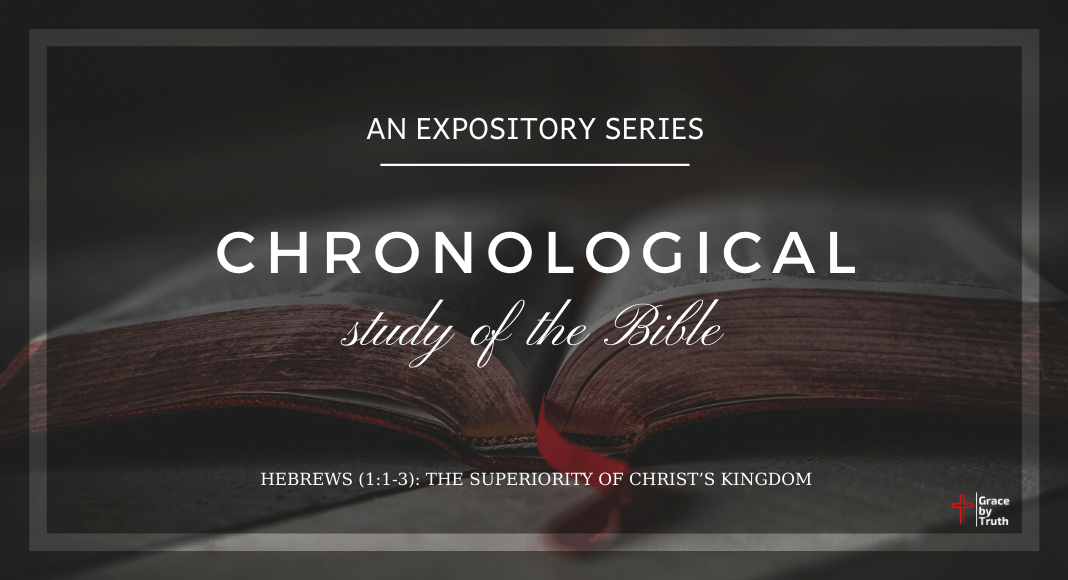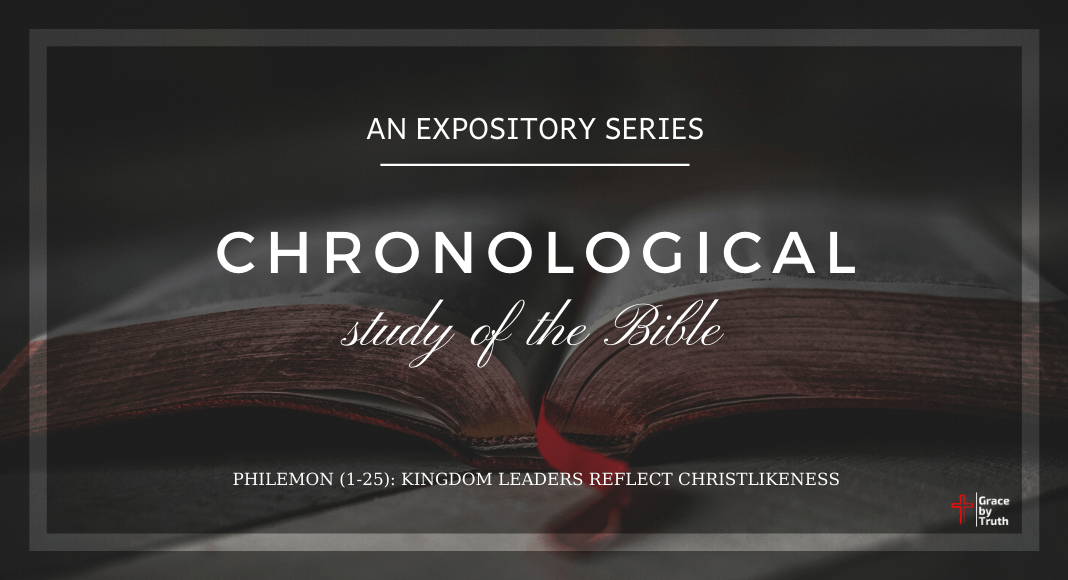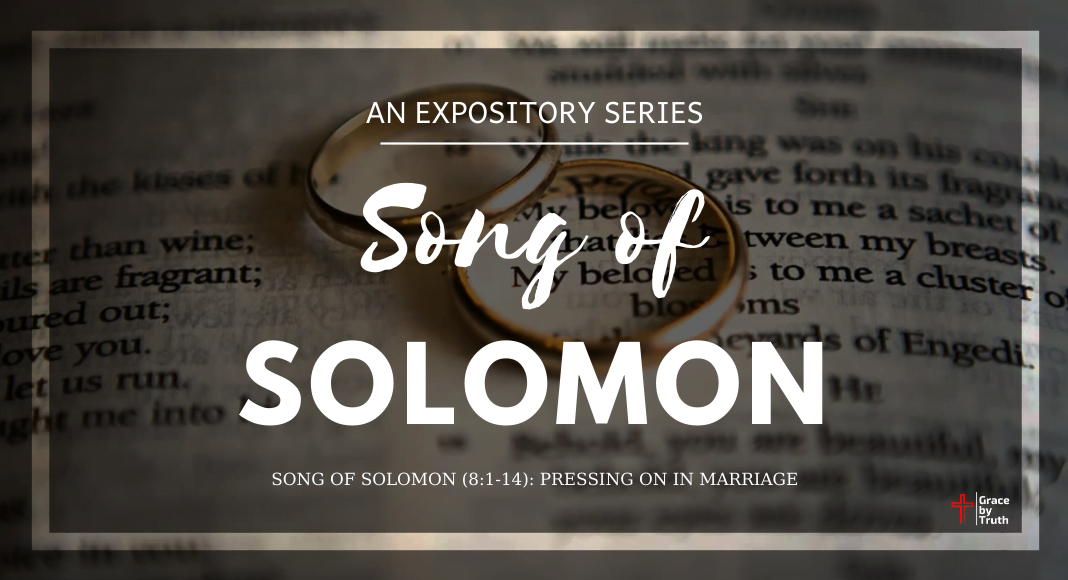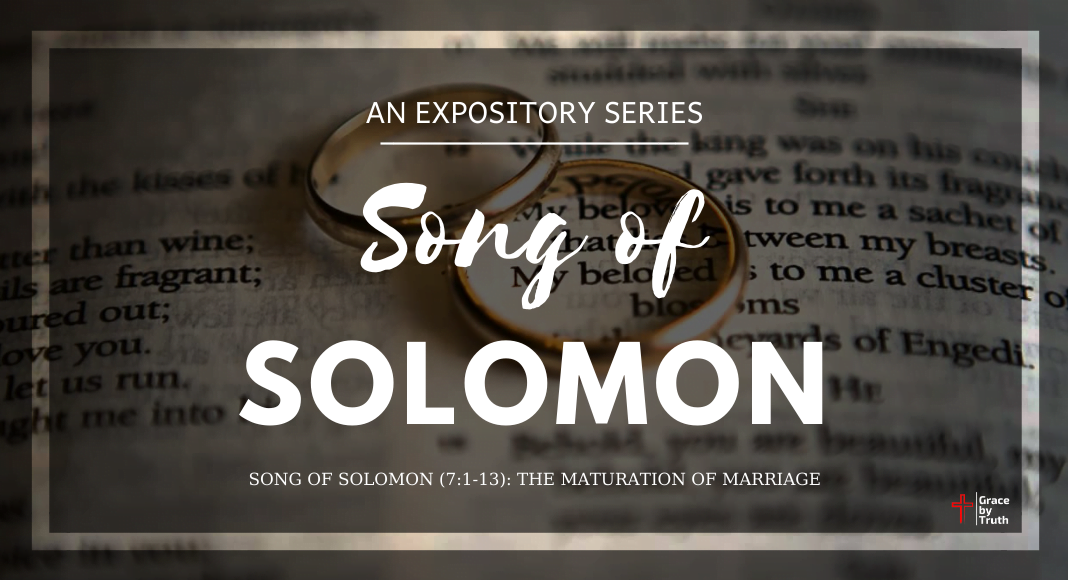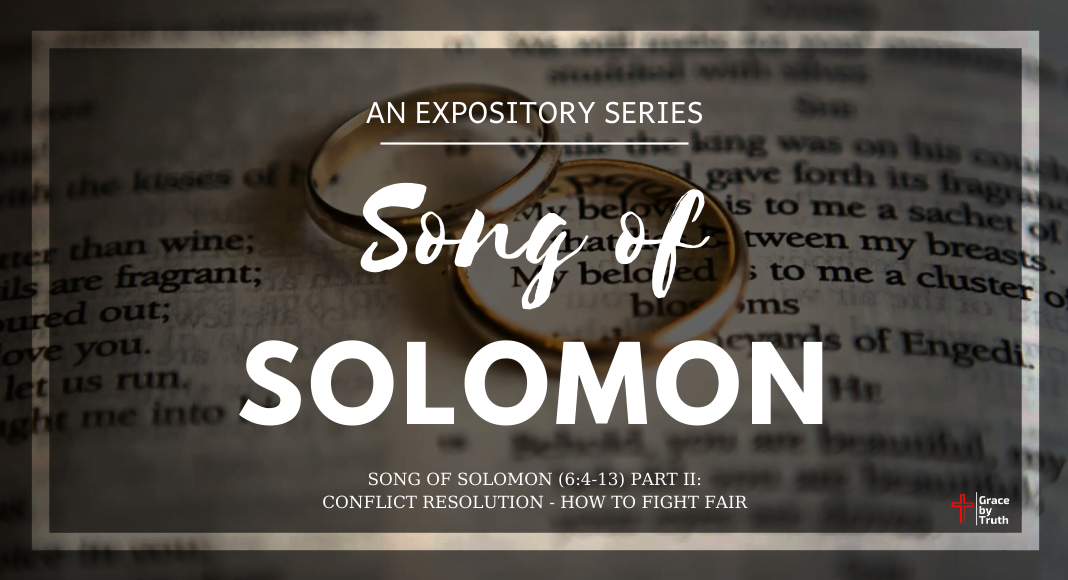Love Separated and Reunited
Song of Solomon 3:1-11
I. Love is separated by time and distance (3:1-5)
A. Shulamite’s separation causes anxiety, expressed in a dream. (1-5)
a. She wants something she does not posses (Solomon’s presence).
b. She seeks Solomon in the city streets at night.
c. She makes inquiries to the city’s watchmen (possibly representative of her conscience).
d. When she finds him, she brings him to a secure place.
e. This is apparently a recurring dream.
- “In verse one the Hebrew word translated “night” is found in the plural number, meaning that the dream came for a number of nights. She would be sleeping when a painful longing would seize her. Solomon had appeared to have forsaken her and withdrawn from her, and she was unable to recover him.”
B. Scripture’s insight on dreams:
a. Biblically dreams fall into two categories: (1) Ordinary dreams, such as all people have during sleep. They can be frightening (Job 7:14); are transitory (Job 20:8; Isa. 29:7-8); and have natural causes (Ecc. 5:2). (2) God also used revelatory dreams or special revelation. This mode of communication conveys information, which could also be given when a person is awake…Both dreams and visions…were frequent modes of divine communication to the prophets of Israel.
- When one’s waking life is characterized by keeping “sound wisdom and discretion” (doing God’s will as revealed in His Word), then sleep will be “sweet,” “pleasant.”(Ps 4:6-8; Prov. 6:20-22, 3:21-24)
- “Sleep is the gift of God; and not a man would close his eyes, did not God put his fingers on his eyelids—did not the Almighty send a soft and balmy influence over his frame which lulled his thoughts into calm, making him enter into that blissful state of rest which we call sleep.”
b. Scripture gives comment to dreams of anxiety and nightmares
- “The attitude or emotional tone of a dream may give evidence of a troubled conscience. “For in a dream, that which is natural to us or that which belongs to our very constitution becomes manifest, and much that is kept down during our waking hours by the power of our will…comes to light during sleep; for fancy then stirs up the ground of our nature and brings it forth in dreams, and thus exposes us to ourselves in such a way as oftentimes, when we waken, to make us ashamed and alarmed.”(Job 33:15-18; Matt 27:19)
- “Under terrors of conscience, men have little rest by night, for the grim thoughts of the day dog them to their chambers and haunt their dreams, or else they lie awake in a cold sweat of dread. God’s hand is very helpful when it uplifts, but it is awful when it presses down.”
- “One application is obvious. While within the marriage bond sexual passion must not be aroused unless it can also be satisfied lest it lead to frustration, outside the marriage bond it can lead to fornication. Any kind of activity that tends to arouse the passions must be avoided by the courting couple. Sex is a beautiful thing and the wedding should mark the climax of courtship and the commencement of sexual life together. It should not be spoiled by allowing the passion to reach the stage of the point of no return.”
II. Love is Reunited by closeness and intimacy (3:6-11)
A. Happiness is revealed in the wedding processional and ceremony.
B. The wedding ceremony has finally taken place.
a. Ancient Jewish Wedding Ritual:
- The Betrothal—the time when the arrangement for the marriage was contracted.
- The Wedding Procession—this was accomplished when the groom went to the house of the bride to fetch her (e.g. Matthew 25:1, Psalm 45) or sent a wedding party to fetch her to his home in a festal procession, and he would go forth to meet her.
- The Wedding Ceremony—in which the two are recognized to be husband and wife in a legal sense.
- The Wedding Feast or Banquet—this follows the wedding ceremony and is found in the second reflection.
- The Wedding Night—in which the married couple become one in the flesh through the first sexual union.
– “The entire section has been building to this climax, the announcement of a wedding. This is what brings joy to the heart of the king, rather than wealth or power or anything else. So significant is this happiness that the term simchah [gladness] occurs only here in the whole of the Song, despite its frequency elsewhere in the Bible (some 95 appearances) and the joyous tone of the Song. Contrary to some commentators, the Song does not portray sex as the great and final goal in order to experience true joy. Nor does it suggest that mutual admiration of the lovers, their physical bodies and sensuality, is the source of joy. Rather, the Song directly associates the joy of the heart with the final commitment of marriage. It is only within this commitment that all the joys of the male and female lovers come together…For the lover, the object of his or her love is one who excepts everyone and everything else. We gaze upon the object of our love in desire, admiration, and ultimately joy because we want to do so, because we see there the fulfillment of all that we long for. In the Song it is the male and female lovers, the bridegroom and bride. For interpreters throughout history, it has been God and his people, and for Christians, Christ and the church.”
Points to Ponder:
- As a believer, having a sense of peace is dependent on fellowship with God. Walk by means of the Spirit and you will not live out fleshly desires.
- When one does not have peace in his life, it is because there is either no relationship or broken fellowship with God.
- Like Solomon, Christ will one day come for His bride, be ready.
ABOUT
Grace by Truth is known for delivering the precise and deep study of biblical truth in service to each other and the church.
CONTACT
CURRENT STUDY
MORE FROM SONG OF SOLOMON
Song of Solomon (8:1-14): Pressing On in Marriage
Pressing On in Marriage Song of Solomon 8:1-14 I. Grow in love. (v.1-4) A. Shulamite’s desire is to be able to show public affection for Solomon. (v.1) - “[Shulamite] is not wishing that they were literally b-rother and sister, but that they had the freedom of...
Song of Solomon (7:1-13): The Maturation of Marriage
The Maturation of Marriage Song of Solomon 7:1-13 I. The Lover’s Dance (v.1-9) A. Solomon describes Shulamite’s features (v.1-7). - This section portrays the maturing of the couple’s marriage. The progress in their love is revealed in two ways. First, the imagery in...
Song of Solomon (6:4-13) Part II: Conflict Resolution – How to Fight Fair
Conflict Resolution – How to Fight Fair (Part II) Song of Solomon 6:4-13 I. Focus on positive communication (v.4-9) A. He extols her physical beauty (v.4) B. He values her and forgives her (v.5-7) - “Solomon still treats her the same, showing his love for her is not...



